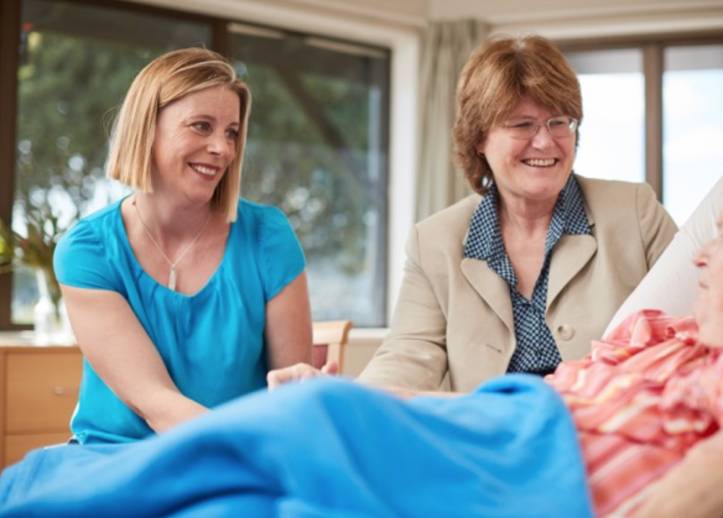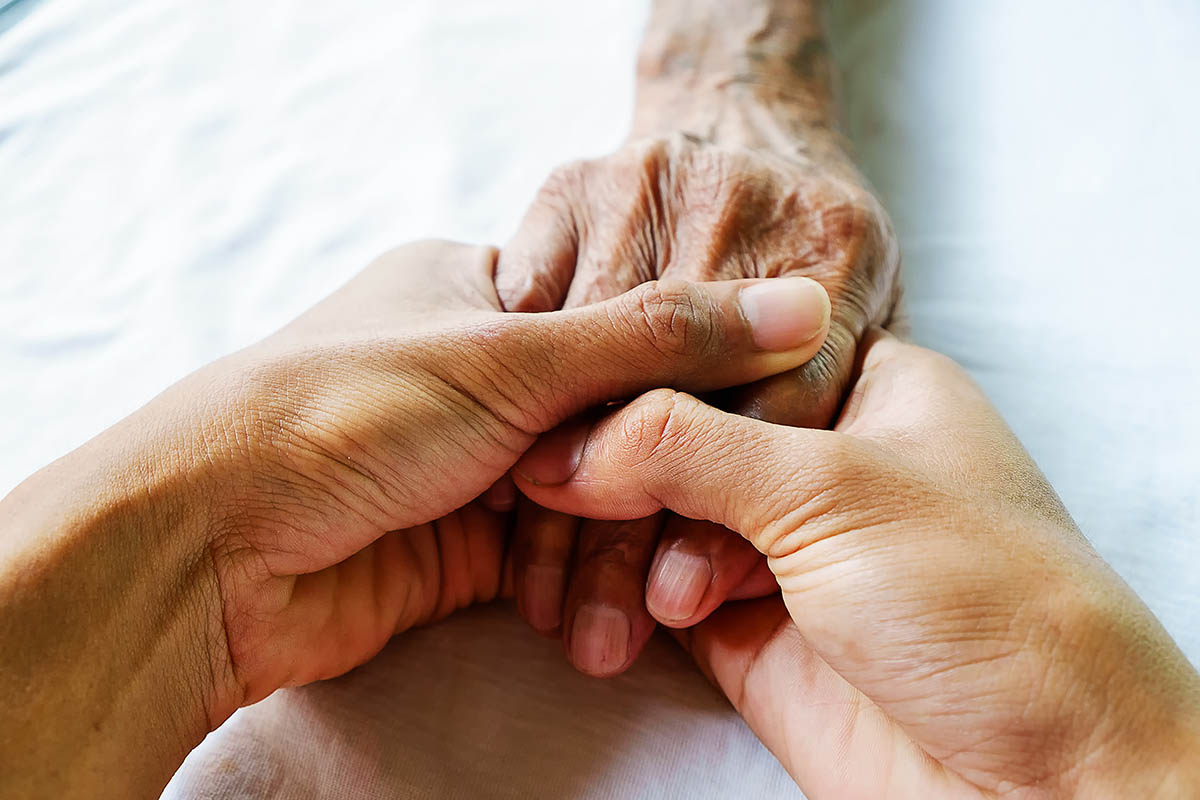‘Rest homes’ have become our unofficial hospices. More older people than ever before are living — and dying — in Residential Aged Care facilities.
Almost half of all New Zealanders over 65 now spend their final years there, and a staggering 70% of them die as a result of complex cognitive conditions such as dementia and stroke, diseases that these facilities traditionally were not equipped to handle on such a scale. Most residents require round-the-clock care before death. And, as our ageing population continues to mushroom, this trend will only continue. By 2040, the number of residents dying over 85 will have almost quadrupled. Such dramatic changes raise important questions about how best to look after terminally ill people in Residential Aged Care facilities.
Ageing Well Principal Investigator, Associate Professor Michal Boyd, set out to tackle these important (but relatively unexplored) questions. An academic at the University of Auckland’s School of Nursing, Associate Professor Boyd has spent her career caring for, and researching, older adults. As a postgraduate biology student, she volunteered at a hospice and witnessed the “profound impact” nurses had caring for people at the most significant moments of their lives. An epiphany of sorts occurred and she changed direction, retraining as a Registered Nurse, and ultimately completing a a PhD in Nursing. Now, as a Nurse Practitioner and academic, Associate Professor Boyd’s research seeks to improve care for older people, and to support residential aged care workers to implement these advancements.
However, as a result (in part) of New Zealand’s aspirational commitment to ‘ageing in place’ – where older adults remain in the community for as long as they are able – Associate Professor Boyd had noticed a new pattern in the sector. “When older people enter residential aged care, they are more frail and have higher dependency than ever before,” she said.
A whopping third of all of these admissions die within six months of entering the new care facility. How frail and terminally ill residents are cared for, especially those with cognitive impairments like dementia, is therefore critical given the expanded role many residential care facilities are now playing. It is also important because the Palliative Care Council of New Zealand argues that almost half of people dying in such facilities would benefit from specialised palliative care.
Yet very little is known about how well we care for those with advanced frailty that are near the end of their lives. Importantly, then, the study was driven by a desire to know what end-of-life care worked well in the residential care facilities, but also where quality improvements could be made.
To ensure the highest quality of end-of-life care the philosophy of palliative care needs to be fully integrated within older people’s nursing.
What makes Associate Professor Boyd’s study new and interesting is that she looked at the issue of end-of-life care from multiple perspectives — family members, General Practitioners (GPs), and Nurses. She said the families and staff reacted “very positively” to being involved in the study, and whānau in particular often appreciated the chance to talk through what had often been a very difficult process. The staff, too, understood the importance of the research, despite the added pressure it placed on them.
During the investigation, important questions arose such as:
Are Health Care Assistants’ adequately prepared to care for people with dementia?
Do nurses have enough support and knowledge when integrating the philosophy of palliative care into gerontology?
As Associate Professor Boyd discovered, to ensure the highest quality of end-of-life care the philosophy of palliative care needs to be fully integrated within older people’s nursing. Positively, the study found that overall end-of-life care in New Zealand is similar or better when benchmarked against other developed countries.
However, there was still room for improvement. And there were differences in end-of-life experiences depending on whether a dying resident had cancer, a chronic illness or dementia. It was found that those with dementia appeared to experience more physical distress for a longer period of time than those with, for instance, cancer. Cancer residents, however, received more support from the community hospice. That is for historical reasons: as Professor Merryn Gott (another investigator on the project) points out, palliative care “grew out” of the need to provide end-of-life care to cancer patients. “However, increasingly people are dying at older ages, often with multiple chronic conditions, frailty, and possibly dementia.”
For Māori, who have a higher risk of living with dementia, little was known about their end of life experience in Western literature. The study uncovered that “spiritual needs” were the highest priority for Māori when facing terminal illness. Staff, too, who held strong religious or spiritual beliefs were less likely to face burnout, the study found.
Associate Professor Boyd’s study enabled her to develop Frailty Care Guides / Ngā Aratohu Maimoa Hauwarea in collaboration with the Health Quality & Safety Commission.
Associate Professor Boyd’s pioneering study yielded fruitful results. With the feedback from family members, GPs, and Nurses, she was able to enrich a key document that will provide a best-practice playbook for nurses and others in the residential aged care sector: Frailty Care Guides / Ngā Aratohu Maimoa Hauwarea. She developed this guide in collaboration with the Health Quality & Safety Commission, the government agency that works to improve health and disability support services.
The Frailty Care Guide offers 26 decision-support tools for nurses covering topics as diverse as frailty, communication, and resident care plans. And of course, there is a support tool for dementia and palliative care. These guides are accessible to all Residential Aged Care facilities across New Zealand and will allow them to incorporate the new knowledge gained from the Ageing Well study into practice. Launched to much fanfare at an event attended by almost 300 stakeholders, the success in the uptake of these guides is a testament to the hard work of Associate Professor Boyd’s team. But the investigation continues.
The team is now also working on an Early Warning System to identify and intervene in situations of acute resident deterioration. These advancements will help health professionals and carers support our most vulnerable older New Zealanders in Residential Aged Care facilities to live and die well.

